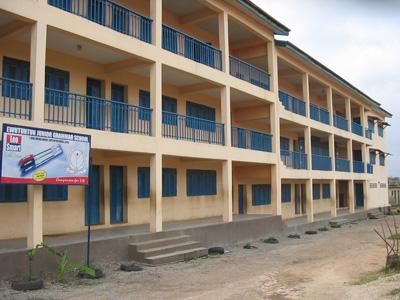


Neglect of public schools will stunt development, Adeniyi cautions

With public schools around the country becoming all that they ought not be, a note of caution has been sounded for the Federal Government to urgently stem the downward spiral, revamp public education if we are to develop as a nation.
Chairman, Editorial Board, Thisday Newspapers, Olusegun Adeniyi, in a lecture titled, “Rebuilding The Nation Through Education,” which he delivered at the 20th anniversary celebration of Trinity International College, Ogun State, stressed that while the country takes pride in being called Africa’s most populous nation, in this age where academic knowledge drives innovation and development, an illiterate population remains a liability to itself and the world. “And that is what Nigeria is fast becoming. We must quickly arrest the slide.”
Addressing the attendees, Adeniyi said, “This may be the wrong forum to say it, but we cannot continue to neglect public education if we are to develop as a nation. To the extent that the educational development of any country is measured by the state of its public schools, it goes without saying that we are already in trouble in Nigeria given what obtains today. I doubt if there is any Nigerian, including even those who are at the bottom of the pyramid, who want to send their children to what we now call public schools in our country today.
“The sad aspect is that most members of my generation were products of the same public schools we have now destroyed and abandoned. Whereas people like us from poor background were able to associate with children of the rich by virtue of the public schools we all attended together at the time, such does not happen today, which means we are already creating different classes of Nigerians. I wonder for instance, how many children of poor people are here at Trinity College. It is not an indictment, but that is just the unfortunate reality of our situation,” the former presidential spokesperson stated.
The seasoned journalist who equally deplored the quality of teachers in public schools added, “If we are to move our country along the path of peace and sustainable development, we must focus our attention on issues like training of teachers. The authorities and critical stakeholders in the education sector must also work towards redesigning the curricular in such a way that it suits the requirements of a developing society with specific goals and objectives.
“The aim of the exercise would be to overhaul and reform the learning content in our schools to ensure that it is more robust and responsive to the socio-economic needs of our country. These are workable interventions and there is no better time than now to take these things on track,” he maintained.
“Along this direction, the stakeholders in education would have to review all existing education curriculum in the country from primary to higher education. There is also need to constantly review instructional practices according to the latest educational researches for all levels. In addition, we need to ensure that there is room for continuous staff development workshops, provisions of well-equipped libraries at all levels and parental involvement in the entire process of educating our children where appropriate,” Adeniyi added.
Furthermore, we need to take back our education construct and design a Nigerian system that works. As things stand, the model we are operating is rather obsolete and cannot produce the required or expected outcomes across board.
Yet, as we all agree, the quality of our education system will determine the quality of the society we will have.
While pointing out that “to rebuild a nation using education as a tool will not be easy. Yet it is a task we must do, and that involves all of us. It is about creating and deploying the values and human capital needed for sustainable national development. Some of the things we need to do include ensuring that such subjects as civics, national history and etiquette are reinstated in our schools.
Source: TheGuardian
Share this post
Naijanetwork Forum Statistics
Threads: 15251,
Posts: 18360,
Members: 6847


